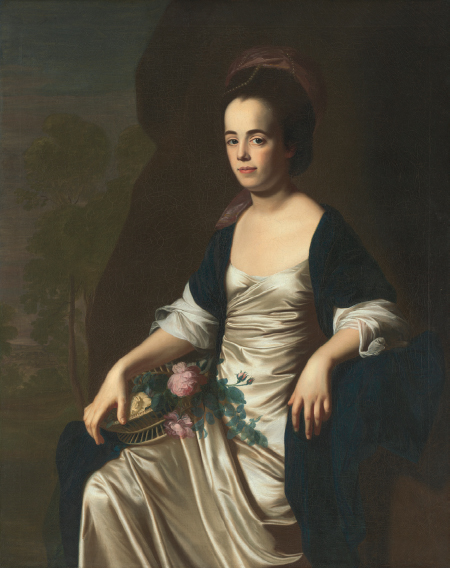America’s History: Printed Page 198
America: A Concise History: Printed Page 176
America’s History: Value Edition: Printed Page 173
Women Seek a Public Voice

The extraordinary excitement of the Revolutionary era tested the dictum that only men could engage in politics. Men controlled all public institutions — legislatures, juries, government offices — but upper-class women engaged in political debate and, defying men’s scorn, filled their letters, diaries, and conversations with opinions on public issues. “The men say we have no business [with politics],” Eliza Wilkinson of South Carolina complained in 1783. “They won’t even allow us liberty of thought, and that is all I want.”
As Wilkinson’s remark suggests, most women did not insist on civic equality with men; many sought only an end to restrictive customs and laws. Abigail Adams demanded equal legal rights for married women, who under common law could not own property, enter into contracts, or initiate lawsuits. The war bonds she purchased had to be held in a trust run by a male relative. “Men would be tyrants” if they continued to hold such power over women, Adams declared to her husband, John, criticizing him and other Patriots for “emancipating all nations” from monarchical despotism while “retaining absolute power over Wives.”
Most politicians ignored women’s requests, and most men insisted on traditional sexual and political prerogatives. Long-married husbands remained patriarchs who dominated their households, and even young men who embraced the republican ideal of “companionate marriage” did not support legal equality for their wives and daughters. Except in New Jersey, which until 1807 allowed unmarried and widowed female property holders to vote, women remained disenfranchised. In the new American republic, only white men enjoyed full citizenship.
Nevertheless, the republican belief in an educated citizenry created opportunities for some women. In her 1779 essay “On the Equality of the Sexes,” Judith Sargent Murray argued that men and women had equal capacities for memory and that women had superior imaginations. She conceded that most women were inferior to men in judgment and reasoning, but only from lack of training: “We can only reason from what we know,” she argued, and most women had been denied “the opportunity of acquiring knowledge.” That situation changed in the 1790s, when the attorney general of Massachusetts declared that girls had an equal right to schooling under the state constitution. By 1850, the literacy rates of women and men in the northeastern states were equal, and educated women again challenged their subordinate legal and political status.
IDENTIFY CAUSES
Question
What impact did republican ideals have on gender roles and expectations during the Revolutionary era?